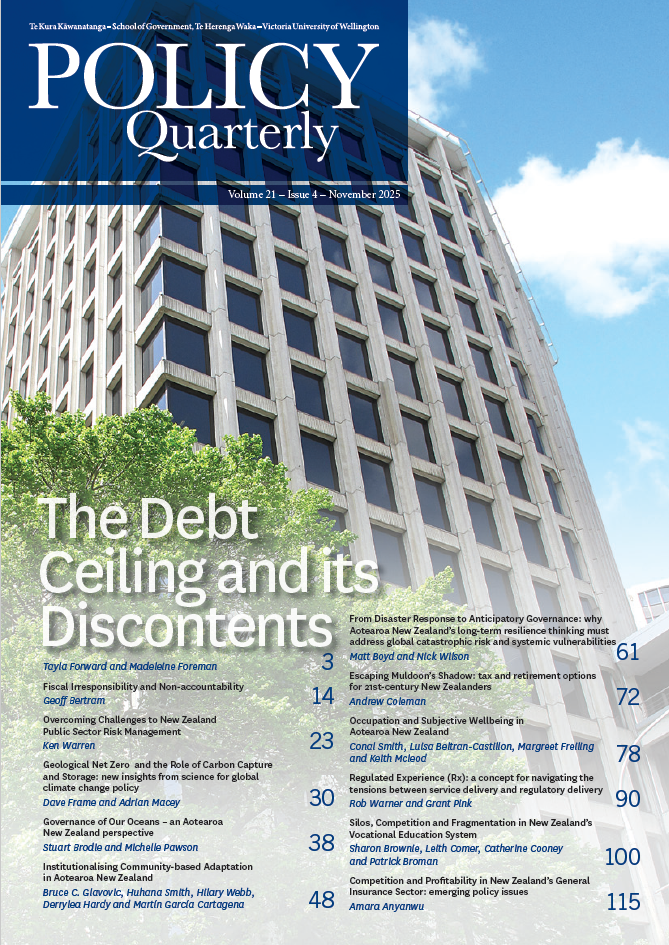Occupation and Subjective Wellbeing in Aotearoa New Zealand
DOI:
https://doi.org/10.26686/pq.v21i4.10334Keywords:
wellbeing, occupation, labour market, job satisfaction, gender equityAbstract
This article investigates the relationship between occupation and wellbeing in New Zealand, using data from the New Zealand General Social Survey (NZGSS), the New Zealand Household Economic Survey (HES) and administrative records. It addresses a gap in information available to inform career decisions beyond pay and working conditions. Findings reveal that while higher incomes generally correlate with higher life satisfaction, this isn’t always the case, with some occupations reporting higher or lower life satisfaction than expected based on income alone. ‘Defence force, firefighters and police officers’, ‘teachers’, and ‘air and marine transport professionals’ all have an average level of life satisfaction that is well above what might be expected based on their incomes. By contrast, while ‘legal professionals’ (lawyers) have the second highest average income in the dataset, their life satisfaction is below average and well below what might be expected based on their income. This information on the relationship between occupation and wellbeing can aid career decision making, as well as help to identify occupations needing support to improve worker wellbeing.
Downloads
Downloads
Published
Issue
Section
License
Permission: In the interest of promoting debate and wider dissemination, the IGPS encourages use of all or part of the articles appearing in PQ, where there is no element of commercial gain. Appropriate acknowledgement of both author and source should be made in all cases. Please direct requests for permission to reprint articles from this publication to Policy-Quarterly@vuw.ac.nz.



